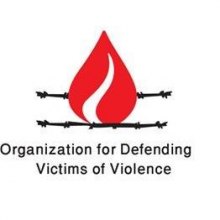
ODVV: Unilateral Coercive Measures Are Contrary to International Law Principles
ODVV: Unilateral Coercive Measures Are Contrary...
Unilateral coercive measures are contrary to international documents including UN General Assembly Declaration on Principles of International Law concerning Friendly Relations and Co-operation among States.
In a written statement submitted to the Human Rights Council’s 41st Session (12-24 June), while supporting the recommendations submitted by the UN Special Rapporteur on Unilateral Coercive Measures, the ODVV called for the adoption of a resolution by the UN General Assembly against these types of measures.
Part of the statement reads:
Being seriously concerned with violation of human rights and the undermining of the international rule of law caused by UCMs, the Organization for Defending Victims of Violence (ODVV) calls on the High Commissioner on Human Rights to monitor the effects of UCMs on human rights in targeted countries, as well as the adverse effects of UCMs on the legitimacy and credibility of the United Nations, including all UN resolutions violated by the UCMs and all the UN goals prevented by such measures, report the findings to the Human Rights Council, and encourage the international community to put an end to unilateralism against sovereign states by great powers.
The full text of the statement is as follows:
Unilateral Coercive Measures (UCM)s and the United Nations
Unilateral Coercive Measures (UCM)s are against many international documents including the General Assembly’s Declaration on Principles of International Law concerning Friendly Relations and Co-operation among States. According to the Declaration: “Every State has the duty to refrain in its international relations from the threat or use of force against the territorial integrity or political independence of any State, or in any other manner inconsistent with the purposes of the United Nations. Such a threat or use of force constitutes a violation of international law and the Charter of the United Nations and shall never be employed as a means of settling international issues” (1).
This is while the UCM literature, the reports submitted by the UN Special Rapporteur on the Negative Impact of UCMs on Human Rights and the on-the-ground experience of civil society in sanctioned countries prove that UCMs’ extraterritorial effects adversely interfere in the internal affairs of targeted countries, affect the targeted populations and violate their fundamental human rights including the right to life and the right to health. The sanctions put excessive force on all sectors of the targeted country as well as third parties(2) , leading to disproportionate breach of human rights of the targeted population and breaking any peaceful ties between the targeted country and other members of the international community.
In addition to widespread violation of human rights in some targeted countries, UCMs violate the rights of third parties to free trade. In the case of the Islamic republic of Iran, the UCMs forbid cooperation and trade among Iran and all other countries, both at the level of public and the private sector. The information available to Iran-based NGOs show that, there are direct contacts from the US treasures or Ministry of State warning foreign banks and companies from getting engaged in any business with Iran, including companies that produce humanitarian items such as food and medicine.
Despite Iran’s long standing attempt to come to an agreement with the world powers and the world efforts to normalize relationships with Iran which was translated into a multilateral agreement called the Joint Comprehensive Plan of Action (JCPOA), in 2015, UCMs aim at breaking the friendship ties and normal trade between Iran and all the counties. This is while economic trade, which is banned by UCMs in case of Iran, can normalize the relationship among states and strengthen the pillars of peace and political stability in the world while, unilateral withdrawal from JCPOA weaken normal economic relationships between Iran and other countries and discredit multilateral approaches, the United Nation and the Security Council Resolution 2231.
In addition to violation of people’s rights and igniting enmity among states, UCMs undermine the legitimacy of the United Nations as an international organization which was established to seek peaceful settlements for international conflicts. Unilateral Measures set a precedent for countries to resort to arbitrary solutions to political disagreements among states, rather than trying to make efforts to respect the rule of law and strengthen the legitimacy of International Organizations including the United Nations. Comprehensive Unilateral Coercive Measures contradict with all sustainable development goals set by the UN and render all UN attempt to attain these goals ineffective.
Being seriously concerned with violation of human rights and the undermining of the international rule of law caused by UCMs, the Organization for Defending Victims of Violence (ODVV) calls on the High Commissioner on Human Rights to monitor the effects of UCMs on human rights in targeted countries, as well as the adverse effects of UCMs on the legitimacy and credibility of the United Nations, including all UN resolutions violated by the UCMs and all the UN goals prevented by such measures, report the findings to the Human Rights Council, and encourage the international community to put an end to unilateralism against sovereign states by great powers.
ODVV echoes the recommendation offered by the Special Rapporteur on UCM and calls on the United Nations’ General Assembly to unanimously adopt a resolution condemning and forbidding the resort to all Unilateral Economic Measures against sovereign states.
1- https://www.un.org/ruleoflaw/files/3dda1f104.pdf
2- Many companies, even the one that produce humanitarian items including medicine, medical equipment and food are warned against making any trades with Iran.
 Reload
Reload



